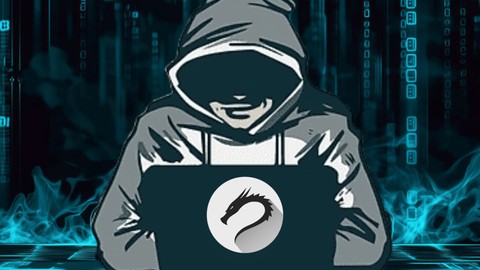Ethical Hacking Mastery: From Zero To Hacker
- Description
- Curriculum
- FAQ
- Reviews
Welcome to the ultimate Ethical Hacking mastery course designed to take you from zero experience to becoming a skilled ethical hacker. This comprehensive course covers all essential aspects of Ethical Hacking, including penetration testing, vulnerability assessment, and real-world hacking techniques.You will learn how to think like a hacker and use the latest tools and methods for ethical penetration testing. Whether you are a beginner or want to sharpen your skills, this course offers practical, hands-on training in Ethical Hacking.What Are the 5 Phases of Ethical Hacking?Ethical hacking is a structured process that follows five key stages to simulate real-world cyberattacks and assess security defenses. These phases include:Phase 1: Reconnaissance (Footprinting & Information Gathering)In this initial phase, ethical hackers gather critical information about the target system, including IP addresses, domain details, and network topology. Tools like Google Dorking , WHOIS lookup help in passive and active information gathering.Phase 2: Scanning & EnumerationThis phase involves identifying open ports, live hosts, and system vulnerabilities using tools like Nmap and OpenVAS. Ethical hackers map out the target’s weaknesses to prepare for potential exploits.Phase 3: Gaining Access (Exploitation Techniques)Hackers use various attack methods such as SQL injection, brute force attacks, phishing, and password cracking to exploit vulnerabilities and gain unauthorized access. Tools like Metasploit and John the Ripper play a key role in this stage.Phase 4: Maintaining AccessOnce access is gained, the hacker ensures persistent access by installing backdoors, Trojans, and rootkits. This step helps attackers maintain long-term control over the compromised system. Ethical hackers use penetration testing tools like Meterpreter to simulate such attacks.Phase 5: Covering Tracks & ReportingTo avoid detection, attackers erase evidence by clearing logs, modifying timestamps, and using anti-forensic techniques. Ethical hackers, however, document their findings in detailed reports to help organizations improve security measures.Boost Your Cybersecurity Career – Enroll Now & Start Learning Today!

External Links May Contain Affiliate Links read more





